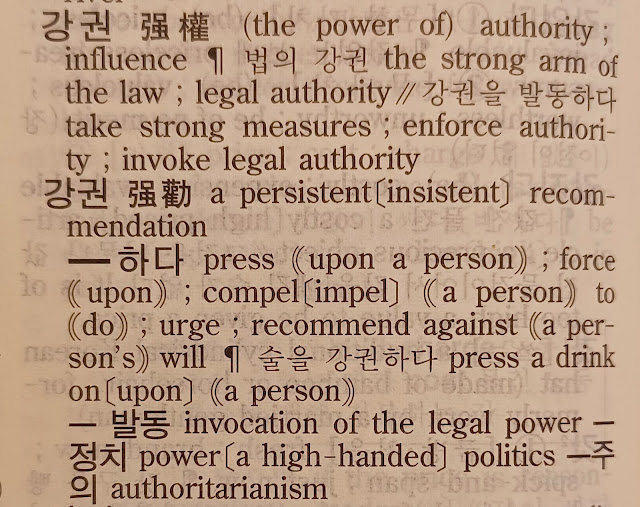ANSWER: If it is the Sino-Korean 방정 (方正), it is a good thing, but if it is the pure-Korean 방정, it is a bad thing. Besides meaning "square" or "direction," the Chinese character 方 (방) can also mean "honest" or "fair," so since the Chinese character 正 (정) can also mean "honest" or "upright," the Sino-Korea word 방정 (方正) could be translated as either "honest and upright" or "fair and square," which is a good thing. The pure-Korean 방정, on the other hand, refers to "rash or careless behavior," which is a bad thing.
Koreans seem to use the good 방정 (方正) only on special occasions, but they seem to use the bad 방정 quite frequently. Nevertheless, how can you know which 방정 is being used in conversation? Well, one way you can tell is that if 떨다 or 맞다 is attached to it, that's the bad 방정.
So, 방정떨다 means "to act imprudently or rashly," but what word do you use when someone is acting REALLY imprudently or rashly? Then you can say 오도방정을 떨다.
In the following video, the guy is talking and using the expression 오도방정 떨다, which the girl believes should be pronounced 오두방정 떨다," though she never corrects the guy. So, who is right, the guy or the girl?
ANSWER: They were both right. 오두방정 is just the "큰말" of 오도방정, which means that though both words have the same meaning, 오두방정 gives the word a stronger feeling. So, even though 방정, 오도방정, and 오두방정 all essentially mean the same thing, the feeling 방벙 gives off is weaker or smaller than that 오도방정, and 오도방정 is weaker or smaller than that 오두방정."
By the way, the word 발광 (發狂) means "insanity," "madness," or "craziness," but if 오도 or 오두 is attached to 발광 to form 오도발광 or 오두발광, it gives off a stronger feeling of craziness.













